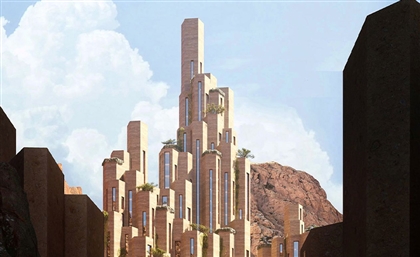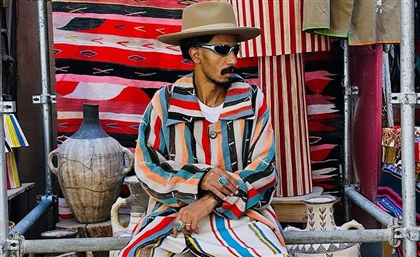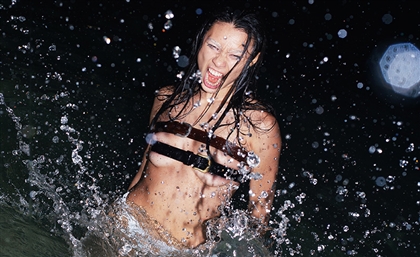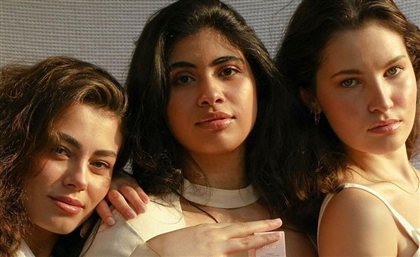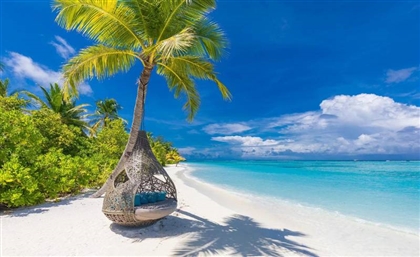Farming Dreams
What goes on in Sinai usually stays in Sinai, but Nolan DiFrancesco wants to spread his seed...
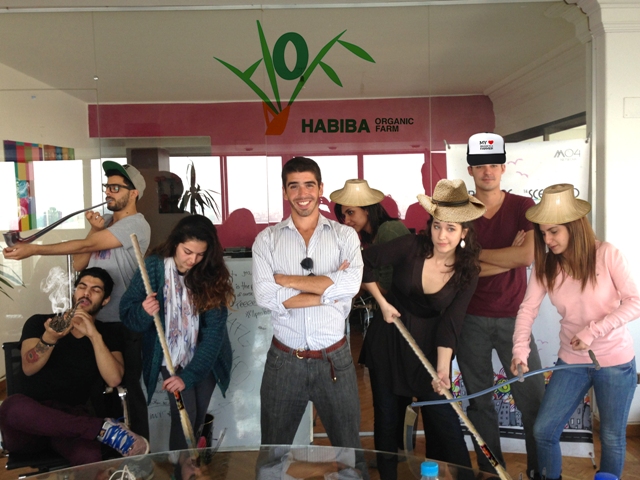
Fresh and fit farmer Nolan DiFrancesco stopped by the CairoScene office to have a chat with us about what he’s been getting up to in the Sinai lately. As project manager of the Habiba Organic Farm organization. DiFrancesco has braved hot suns, untoilable soils, and teams of volunteers to help create something out of nothing in the Sinai desert. Read on if you’ve always wanted to know how to make tomatoes appear out of the ground, or if you’re just wondering where to find a truly organic meal in Egypt…
So please explain what it is that you do you.
I’m the project manager for the Habiba Organization, which is an agricultural organisation based in Nuweiba. Our long term goal is to build a sustainable community in the desert but for now the projects that we’re working on involve developing community based agriculture with the Bedouin community. We also run a beach camp – a family friendly, ecologically-minded beach camp – called Habiba Village.
How did this whole project come about?
The owner of the whole organization is Maged el Said. In 1994 he started the beach camp, and then in 2007 he started the organic farm. But as tourism began to deteriorate in the Sinai and more and more people became interested in farming the project took on a new life of its own and now it’s serving the community to expand organic agriculture within South Sinai.
So it started off as a tourist spot...
Yeah, it started as a beach camp, then he started an organic farm, but really it wasn’t… I mean… farms in the desert in the Sinai? It’s kind of a crazy idea. What it has become really is an experimental farm. It’s a place where people can see the various aspects of organic agriculture in the desert, they can learn about the techniques that we use, and it’s become somewhat of a training centre, for the local people and for others. We’re actually a ‘WWOOF’ farm, do you know about wwoofing?
What?
WWOOF is an organic farm network where volunteers come from all over the world to work on organic farms.
Where do your volunteers typically come from?
Literally every continent. Maybe not Antarctica, but every other place in the world. Just this past month I’ve had people come to us from Japan, the Netherlands, South Africa, and we had a couple Americans.
So can anyone come and help out?
We’re always open to the idea of new volunteers. If anyone feels they can come and contribute, we’re happy to bring them in.
Is it mandatory to wear flip flops everywhere?
Umm… It’s certainly not one of the requirements. I mean life is pretty chill and Sinai is a beautiful place. If you really truly love what you do, it’s not work. And this certainly doesn’t feel like a typical day job.
Aren’t drugs a problem in the Sinai?
The Sinai is the Sinai. It has a history of drug cultivation, but honestly one of the most interesting aspects of the job is seeing just how people are growing drugs out in Sinai and where that industry is going. There’s this effort now to expand into medicinal herbs, the legal kind.
The boring kind…
Well, yeah, ok, you can call them that, but I’ve seen these various cooperatives start, especially up near St. Catherines and we’re trying to encourage people to grow anything from the regular kitchen variety herbs to teas and stuff, and they’re starting to make a lot more money from that. A real, sustainable income that benefits communities. That’s not so boring.

What originally got you interested in organic farming, did you study it in school?
Uhh no, I studied political science actually. To be honest I didn’t have much of an interest when I came here. I came personally to relax on the beach and learn Arabic, but I got so into this project and I have developed quite an interest in agriculture. There’s a movement in agriculture called permaculture – do any of you know what that is?
Not at all…
It goes by different names.. in Egypt I hear people referring to it as biodynamic farming, and then some universities refer to it by the more academic name agro-ecology, but it’s this idea that we need to rethink agriculture in a revolutionary way. Instead of growing a single crop in industrial style farms, you grow using more natural methods. You throw lots of crops together that help each other grow; companion planting.
Have you thought of cool new names for it? Like PermaCOOLture?
Yeah maybe we should work on that…
How paranoid are you about processed foods? What’s your own diet like?
Well I mean, I work on a farm, so my diet’s not bad. I have a lot of fresh veggies and I’m for the most part vegetarian. I think if more people were aware of where their food is coming from that would benefit everyone, whether its helping stop the pollution in the Nile to a better attitude towards food security issues in this country.
What crops do you grow?
We grow a little bit of everything really. It’s not a very large farm, but as I said we’re working with experimental type plots for now. We grow everything from pomegranate trees to olive trees, vegetables, leafy greens, as well as tomatoes, peppers, and eggplants. And we’re actually growing a lot of date palms as part of the Sinai Date Palm Foundation, which I’d like to talk about if you’ll give me a moment.
We’ll give you exactly two minutes…
So the Sinai Date Palm Foundation is part of this organisation we’ve started that’s trying to bring a sustainable source of income to the local community, We’ve invested in these dates, the Medjool dates, which are known as the finest variety of dates that you can find in the world. The idea is that the initial crop we’re purchasing will show the local community that they can be grown, and have a successful harvest, but we’re also encouraging involvement from the local community. Once people begin to see the potential, then we can better use the open land and water resources of Nuweiba to create entirely new industries. Sustainably grown dates have the power to transform communities from the ground up. And everyone can be involved, from the people helping to cultivate the land, to the community – even the women – helping to cultivate, package, and sell these dates.

Is there anything you can’t grow?
Definitely, it’s a desert environment, so it can be difficult. We’re dealing with sand and salty water, so there are challenges like that. The most important thing in environments like that is soil building; so you have to start from day one with the attitude that you need to plant crops and to build up your soil and build up the nutrients. It’s mostly common sense stuff, but it’s stuff you can look up online too. If I start talking about nitrogen fixing plants and things like that, it might sound complicated, but really its just this natural process of agriculture.
If you woke up one morning and found yourself as a vegetable, which vegetable do you think it’d be?
I imagine I’d wake up as a carrot, but I don’t have a good reason why.
Are the crops that you produce sold locally or elsewhere?
They’re sold locally; our big markets are Dahab and Nuweiba. But really, just in the past year or so, there have been so many more small community farms popping up. So many Bedouins who have been working in the tourism industry have now started farming because it’s a more sustainable way of life, and so more and more people are interested in farming. One of our challenges for the future is how to create this cooperative of farming and how to find the markets for them, so that their work is profitable.
Have you had any farming disasters?
Farming disasters? No, hamdullilah, we haven’t had any disasters, but you bring up a good point, which is that in desert farming, you have to be aware of the risks, which is one of the benefits of permaculture. The more crops you grow with each other, the more all the crops can benefit. Some attract the good pests, other crops repel the bad pests. God forbid something happens to one of your crops, a bug eats all of your tomatoes or something, you still have all the other crops and it’s not a waste.

What’s in store for the Habiba organisation in the future?
Sure! What we’re developing now are two different ways of trying to reach the same goal. The long term goal is to build a model sustainable community in the desert. We want Habiba to be a model for sustainable eco-villages. We want our farm to be a model for sustainable agriculture. We are working with people to build new model green, energy efficient homes. Through all of this, our goal is to work with the needs of the local community. Through partnerships with NGOs and universities, we will begin offering workshops on these different subjects, even some really exciting marine ecology projects, that both the locals and the foreign tourist crowd can get excited about. Add the dimension of tourism, especially the potential for community-based, eco-tourism, and I think we’ve developed a good model to build stronger, healthier communities.
What is your favorite Pokemon?
My favorite Pokemon is, I think, Electrode.
What’s the money like in what you’re doing? Do you get paid in vegetables?
As I work with mostly volunteers, I have also not accepted a salary. So the money’s not great, to answer your question. But it’s great, it’s a really nice life. I mean, I have a nice little beach bungalo, I get delicious meals. The pace of life in the Sinai is very different than in Cairo.
Do you get anxious here?
No, but I’m only in Cairo for a week at a time, so it’s…
No, we mean in this office…
Oh, in this office? Yes, you guys work in a very high paced environment.
What’s the craziest thing that’s happened on the farm?
Well that’s the thing, Egypt kind of desensitises you, so crazy things happen I’m sure, but to me it’s just like, eh… Tuesday.
Find out more about Habiba Camp and Farm on their Facebook page here and follow @HabibaOrganicFaor visit http://www.habibaorganicfarm.com/.
- Previous Article I Got Banged!
- Next Article Love & Lusterity. IMF: Part Two
Trending This Week
-
Apr 13, 2024





